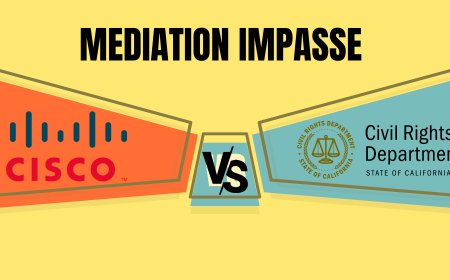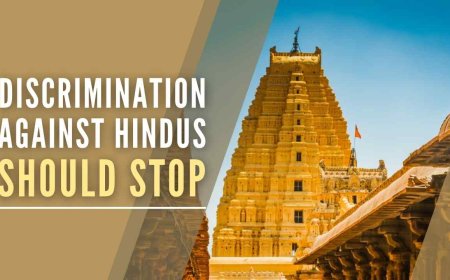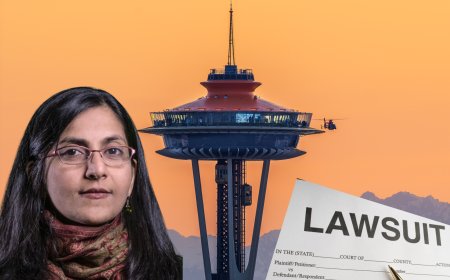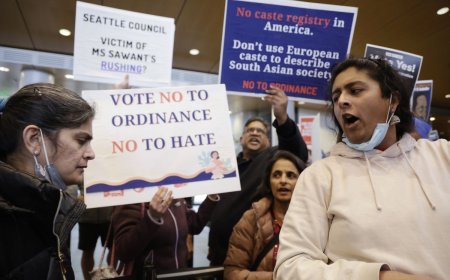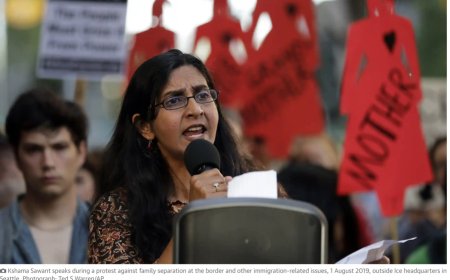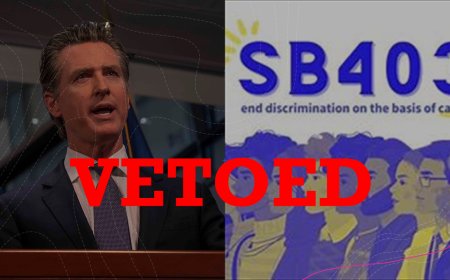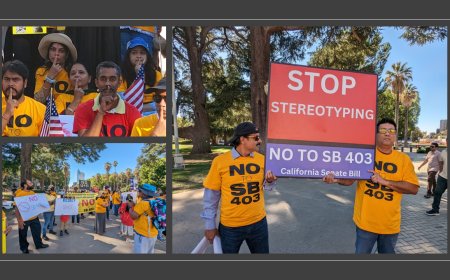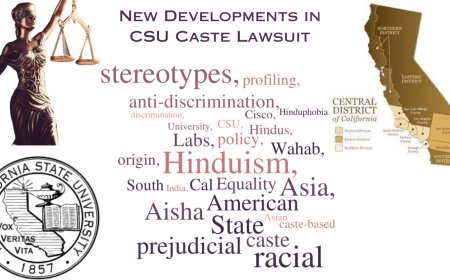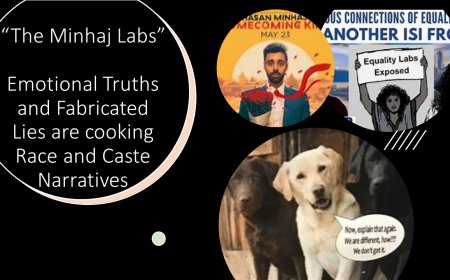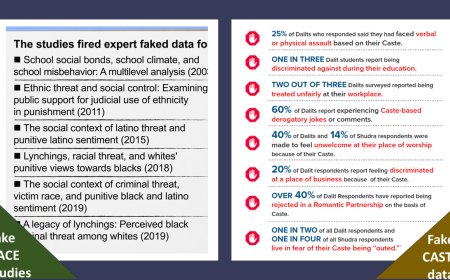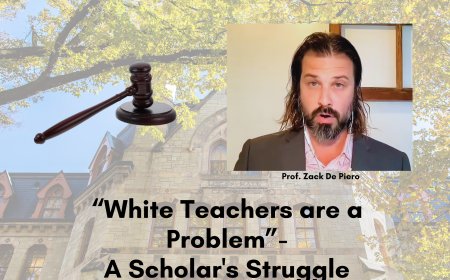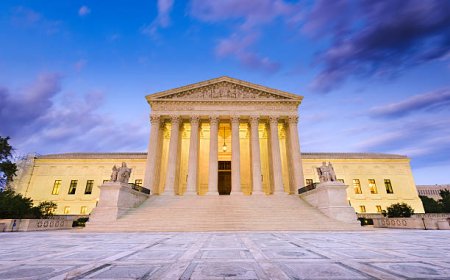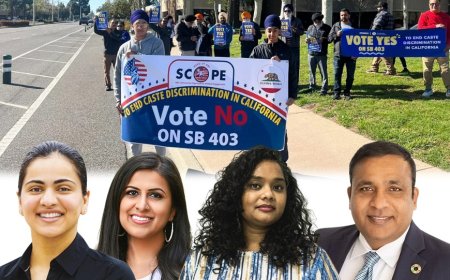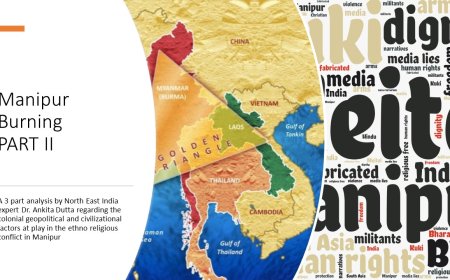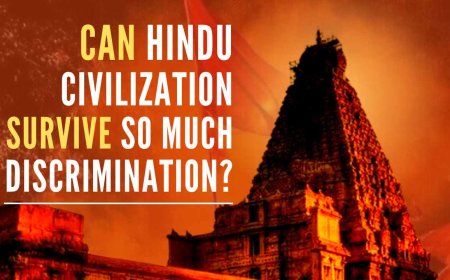5 Times the CRD California Violated the Constitution in the Cisco Caste Lawsuit
Caste files, Caste, Hindu, India, Cisco
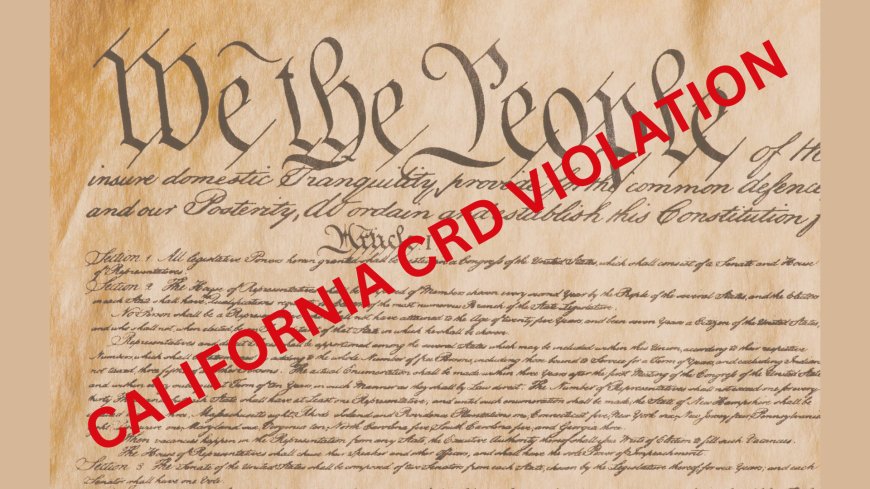
By Gagandeep Kaur
(Editor's Note: This article has been updated to reflect that the baseless and xenophobic caste lawsuit filed by the California Civil Rights Department (CRD) on behalf of a self-identifying Dalit against two Cisco employees (Sundar Iyer and Ramana Kompella) has been dismissed, leaving the employees vindicated. The case lacked factual support and relied on a debunked report by Equality Labs to bolster its claims of widespread caste discrimination in the tech sector, including at Cisco. The judge's refusal to accept the report as evidence in February 2021 proves that the State of California violated civil rights and attempted to attribute wrongdoing to Hindus and Indian Americans based on their religion or ethnicity.)
The Constitution is one of the most significant documents in the history of the United States of America. One of the core principles enshrined in the Constitution, and which is central to its First Amendment is the protection of religious freedom and the importance of ensuring that citizens have the right to practice their religion and express their beliefs without fear of persecution or discrimination.
The First Amendment's Establishment Clause prohibits the government from making any law “respecting an establishment of religion, or prohibiting the free exercise thereof.” It both forbids and prevents the government from establishing an official religion and prohibits the government from taking any actions that would favor one religion over another or from bearing preference of religion over non-religion or from preferring no religion over religion.
In its frivolous and unwarranted lawsuit against former Cisco employee Mr. Sundar Iyer, the California Civil Rights Department (CRD) -- previously the Department of Fair Employment and Housing (DFEH) -- violated the Establishment Clause of the First Amendment of the United States Constitution at least five times.
“Without Thomas Jefferson and his Declaration of Independence, there would have been no American revolution that announced universal principles of liberty. Without his participation by the side of the unforgettable Marquis de Lafayette, there would have been no French proclamation of The Rights of Man. Without his brilliant negotiation of the Louisiana treaty, there would be no United States of America. Without Thomas Jefferson and James Madison, there would have been no Virginia Statute on Religious Freedom, and no basis for the most precious clause of our most prized element of our imperishable Bill of Rights - the First Amendment to the United States Constitution.” ― Christopher Hitchens
In June 2020, the CRD filed a lawsuit on behalf of a “John Doe,” an unnamed self-identifying Dalit, and alleged caste discrimination under his “Brahmin” bosses. However, court documents indicate that it was through Doe’s own negligence that he missed out on a promotion opportunity. Doe then then decided to use caste as the excuse for his loss and filed HR Complaints and the Lawsuit. Court records show that the CRD has deliberately hidden (amongst many other facts) the truth that the prime accused “Brahmin” CEO offered all the top head leadership positions to another meritorious self-identifying Dalit.
Violation of the Establishment Clause
The First Amendment prevents the government from interpreting religion. The Establishment Clause is a provision in the First Amendment to the U.S. Constitution that prohibits the government from establishing, promoting a religion. It states that "Congress shall make no law respecting an establishment of religion or prohibiting the free exercise thereof." This clause, therefore, is designed to ensure that the government does not favor one religion over another or impose any religious beliefs or practices on its citizens and it is intended to protect the religious freedom and liberty of all individuals and prevent the government from using its power to support or promote any particular religious group or belief system.
The CRD has repeatedly violated this clause by interpreting Hinduism and ascribing a caste hierarchy to it. The agency has defined caste as "a strict Hindu social and religious hierarchy" and has labeled Brahmin as the highest Hindu religious caste. Additionally, the CRD has defined Dalit as the "most disadvantaged people under India's centuries-old caste system."
Dalit is actually a political term invented during the late 1800s and 1900s for those Indians who became poor due to the colonial extraction economy. The large Indian middle class that powered the then richest nation in the world, became hapless and poor due to British exploitation.
The CRD also violates the First Amendment rights of Hindu Americans by submitting declarations that define caste as emanating from Hindu scriptures and constructing a system of religiously codified exclusion. Such declarations are an attempt to interpret religion and impose a particular interpretation on a religion's followers, which is a clear violation of the Establishment clause of the First Amendment.
The Establishment Clause has been interpreted by the Supreme Court to mean that the government may not endorse or promote religion in any way. The clause also prohibits the government from discriminating against individuals or groups based on their religious beliefs or practices and ensures that all individuals have the right to practice their own religion freely, or to choose not to practice any religion at all.
The CRD’s first violation of the Establishment Clause occurs on Page 2, line 5 of its complaint in which the CRD interprets Hinduism by defining caste as “a strict Hindu social and religious hierarchy.” Furthermore, the CRD ascribes a caste hierarchy to Hinduism by interpreting Brahmin as the highest Hindu religious caste through the following statements: On page 8, line 8 of the complaint, the CRD writes, “Upon information and belief, Iyer is Brahmin,” and on page 3, line 7, it writes, “Defendants, Sundar Iyer and Ramana Kompella are from India’s highest castes.” Then, on page 2, line 5 of its complaint, CRD further ascribes a caste hierarchy and denigrates Hinduism by defining Dalit as the “most disadvantaged people under India’s centuries-old caste system.”
Numbers Matter
The second blaring violation of the Constitution’s Establishment Clause and Free Exercise Clause occurs when the CRD assigns a “Brahmin” identity for Mr. Iyer (the main manager in the CRD Complaint) despite the fact that on his Stanford University page from 20 years ago he publicly declares: “I don’t profess knowledge of, and have never practiced any [religion]”. Thus, the CRD violates the First Amendment rights of an irreligious American and in doing so, violates the Free Exercise Clause of the First Amendment.
The third violation occurs when the CRD attempts to interpret religion and perpetuates the caste-by-birth social hierarchy. The CRD presumes caste by virtue of birth on Mr. Kompella and Mr. Iyer, an irreligious American citizen who has actively opposed and has never undergone any rite of passage or caste marker as deemed by the upayanam thread ceremony and rite in which the young Brahmin boy is invested with the sacred thread and initiated into the Gayathri (this can be found on Page 1, lines 14-18 of the filing). This hypocrisy is the very antithesis of what a Civil Rights Department should stand for.
The fourth violation occurs when – on page three, lines one through three of the complaint -- the CRD fabricates a “higher caste” status for every other team member in the group, “except for Doe the entire team is also from the upper-castes.” The CRD claims that the group is comprised of “entirely Indian employees” and thus, the CRD assigns -- without any proof -- a Hindu religious status to all these Cisco employees and interprets their alleged religious practices for them, thereby violating their First Amendment right.
This is demonstrably false as described in the Motion for Sanctions on page 10, lines 21 through 23. It can also be redacted from public records which show at least five candidates on the team were of non-Indian origin. Public and LinkedIn records even show that many of these employees come from North American, East Asian, and other non-Indian ethnic and cultural backgrounds.
Fifth, the CRD further violates the First Amendment rights of Hindu Americans by submitting Mr. Suraj Yengde’s declaration on page 2, line 11, which states, “caste emanates from the Hindu alias Brahmanical books of rule” and makes multiple further references to define Hinduism. In addition to this, the CRD submits a declaration from Professor Laurence Simmons which incorporates another attempt at defining religion stating falsely that “caste and untouchability are constructions of Hinduism” [pdf pg. 21, 1st paragraph, Foreword, Religious and Cultural Justice].
The CRD's violations of the United States Constitution are a cause for concern and its attempts to interpret religion, assign caste status to individuals without any proof, and perpetuate the caste-by-birth social hierarchy is a clear violation of the First Amendment's Establishment and Free Exercise clauses. The government must ensure that agencies like the CRD adhere to the Constitution and respect the rights of all citizens, regardless of their religion or background. If citizens do not stand up and take action against these crimes against Hindu Americans, these violations will only worsen and result in even more stigmatization against South Asians.




